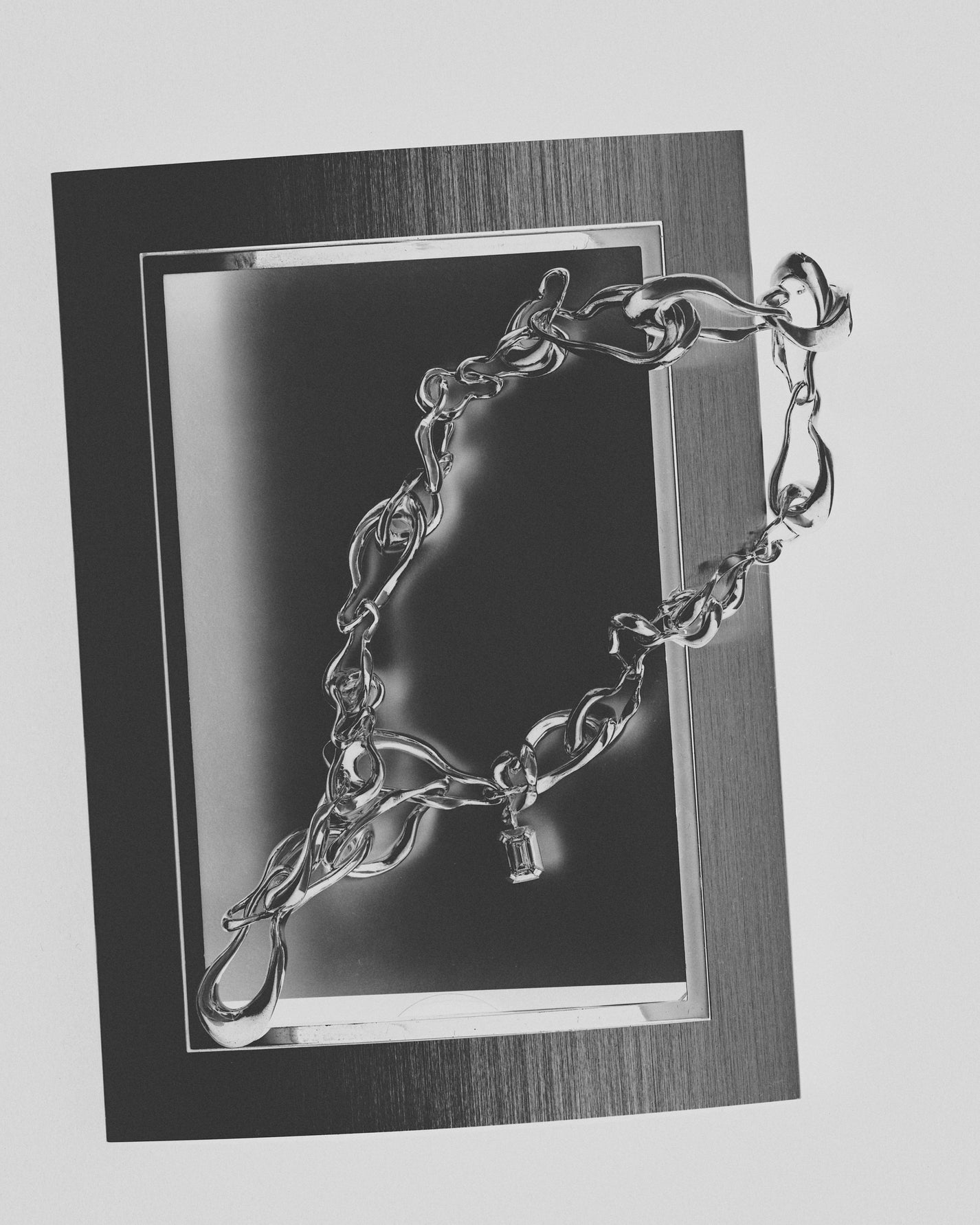At her jewellers bench, sculptural forms are pared back to their purest expression, refined through the design process and technical complexity.

Australian designer Kari Layton approaches jewellery as a sculptural language, exploring how form, scale, fold and composition can exist in dialogue with the body. Starting Lott Studio gave precedence to the distinct sculptural forms of her work, pairing a poetic visual language with sculptural function.
Her interest in sculptural form has long shaped her way of seeing. From a young age, Layton observed nature and colour through an intuitive lens—interpreting folds, surfaces, and details as visual metaphors. This inwardly visual world continues to be informed by architecture, found objects, and the subtleties of the natural world.
In 2012, while living in Berlin, she found a sense of cultural and artistic freedom that laid the foundation for deeper self-exploration. It was here—in the calm and introspective space of jewellery making—that her practice began to take shape. The physicality of handwork, combined with the intellectual and technical discipline of jewellery, offered an expressive outlet that resonated deeply. During her first year of studio-based learning, early interest and purchases helped spark the beginnings of what would become Lott Studio.
Since returning to Melbourne and establishing her studio in 2015, Layton has developed a process-led practice that balances wax carving with traditional forging techniques. Through intuitive experimentation and a commitment to specific sculptural outcomes, Lott Studio was born from a desire to explore jewellery as both adornment and art. The studio creates sculptural pieces that move with the body—each one an invitation to compose, layer, or let stand alone.
Each piece is originally hand-carved in her Melbourne studio. Production is carried out either in-house or by a team of Australian jewellers trained by Kari—ensuring the continuation of quality craft through shared practice. The studio uses recycled gold and silver, conflict-free diamonds, and carefully sourced gemstones, and operates with a near-zero waste policy.
Australian designer Kari Layton approaches jewellery as a sculptural language, exploring how form, scale, fold and composition can exist in dialogue with the body. Starting Lott Studio gave precedence to the distinct sculptural forms of her work, pairing a poetic visual language with sculptural function.
Her interest in sculptural form has long shaped her way of seeing. From a young age, Layton observed nature and colour through an intuitive lens—interpreting folds, surfaces, and details as visual metaphors. This inwardly visual world continues to be informed by architecture, found objects, and the subtleties of the natural world.
In 2012, while living in Berlin, she found a sense of cultural and artistic freedom that laid the foundation for deeper self-exploration. It was here—in the calm and introspective space of jewellery making—that her practice began to take shape. The physicality of handwork, combined with the intellectual and technical discipline of jewellery, offered an expressive outlet that resonated deeply. During her first year of studio-based learning, early interest and purchases helped spark the beginnings of what would become Lott Studio.
Since returning to Melbourne and establishing her studio in 2015, Layton has developed a process-led practice that balances wax carving with traditional forging techniques. Through intuitive experimentation and a commitment to specific sculptural outcomes, Lott Studio was born from a desire to explore jewellery as both adornment and art. The studio creates sculptural pieces that move with the body—each one an invitation to compose, layer, or let stand alone.
Each piece is originally hand-carved in her Melbourne studio. Production is carried out either in-house or by a team of jewellers trained by Kari—ensuring the continuation of quality craft through shared practice. The studio uses recycled gold and silver, conflict-free diamonds, and carefully sourced gemstones, and operates with a near-zero waste policy.

